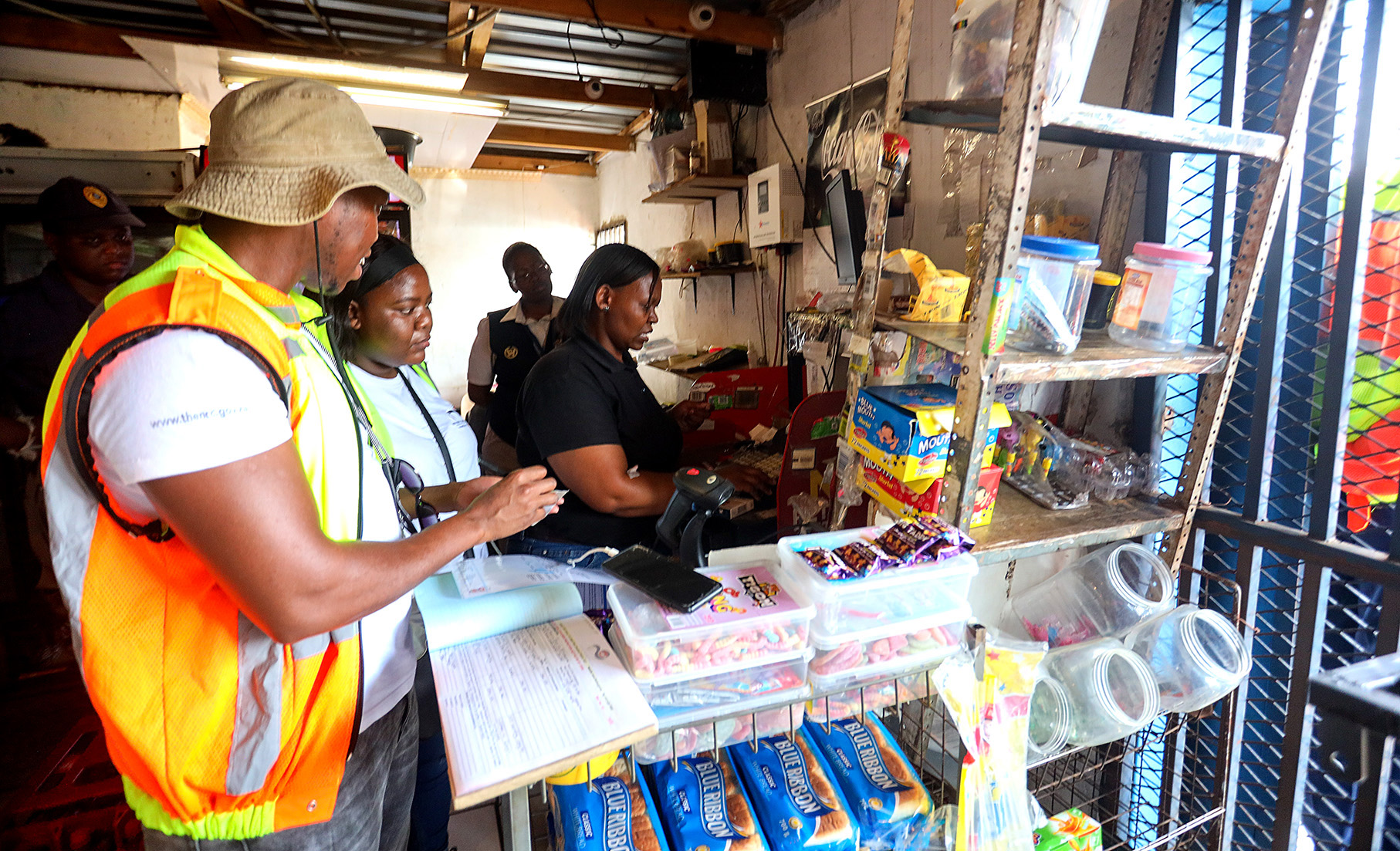“I would starve to death if the Pakistanis were to leave for good. He gives me groceries not exceeding R350, and when I get my R350 social relief of distress grant, I pay him back. Shoprite will do no such thing,” said Soweto resident Sifiso Twala, 28.
Twala spoke as the continued presence of foreign shop operators in parts of Gauteng becomes untenable despite the glaring need they serve in communities.
“I hardly go to the mall for anything. None of the big shops will give you groceries on credit, but they (foreign shop operators) do it because they know we are resident in the area, we are not running away,” said Soweto resident Julia Khoza, 43.
Khoza added that the foreign shop operators charged an extra R10 for every cash-back transaction.
“I still don’t mind the extra R10 because I get groceries much cheaper and save on the trip to town or to the mall, which can cost a lot more,” said Khoza.
Uncertain future
The spaza shop economy, which authorities have recently estimated to be worth R13-billion per annum, faces an uncertain future following a series of deadly incidents blamed on suspected poisoned spaza shops foods.
“When I was still looking for work, I would ask ‘my friend’ for help with transport fare. This went on until I found a job in Lenasia,” Zunaid Peterson said.
“When I did not have money to buy my son food to prepare his school lunchbox, the shop operators lent me some. If it were up to me, they would stay,” said Peterson.
Communities now find themselves divided over the foreign shop operators’ presence. While some residents appreciate the economic support and convenience provided by foreigner-operated spaza shops, others are increasingly wary.
 A dog keeps guard at the entrance to Thomas Supermarket in Soweto. Communities in Soweto are divided over the continued presence of foreign shop operators in their areas. (Photo: Bheki Simelane)
A dog keeps guard at the entrance to Thomas Supermarket in Soweto. Communities in Soweto are divided over the continued presence of foreign shop operators in their areas. (Photo: Bheki Simelane)
The once harmonious relationship is now marred by suspicion and fear, as communities grapple with the consequences of the ongoing unfortunate deaths of children, allegedly after eating suspected poisoned spaza shop foods. Police have initiated five inquest dockets after the death this month of five children in Naledi - Monica Sebetwana (6), Ida Maama (7), Isago Mabote (8), Karabo Rampou (9) and Njabulo Msimanga (7) .
Soweto resident Hazel Sibanda said. “They are helpful, but personally, I do not get from them anything for free. I did not have a perimeter wall around the house. So my tenants, who are foreign shop owners, built the wall for me. I did not collect rent from them and they operated free for a whole year as my way of paying them back for the perimeter wall.”
“Also, when I need to borrow money from them, they give me. Last year I was charging them R1,400 rent, but after the building of the perimeter wall, their rent now stands at R2,600,’’ Sibanda said.
“Our electricity transformers burst often, and the foreign shop operators normally pay for new transformers. We cannot afford that kind of money. They also donate when there are funerals in the area, and also attend with the rest of the community,’’ Soweto resident Samson Mashele, 76, told Daily Maverick on Tuesday.
Credit
“They also give credit on groceries to locals and pensioners who pay at the end of the month when they get their pension money. We rely on them for many things, but as community members we are not singing from the same hymn as others want them gone,’’ Mashele said.
On Monday, authorities launched a crackdown on spaza shops in Naledi, aimed at enforcing compliance with health and safety regulations and a response to the growing outcry over the suspected food poisoning cases.
Read more: Dearth of health inspectors in Soweto ‘jeopardises safety of our children’
The spokesperson for the National Consumer Commission, Pheto Ntaba, said possible penalties for non-compliance would include the commission issuing compliance notices or even launching an investigation.
“Suppliers that are investigated, and if found in contravention of the Consumer Protection Act, can be referred to the National Consumer Tribunal for prosecution and face an administrative penalty of up to R1,000,000 or 10% of the supplier’s turnover,” Ntaba said.
The last straw
The ongoing deaths of the children have cast a long shadow with many foreign spaza shop owners now facing expulsion and looting in Gauteng. “This is really sad news. Expelling them should have been the last straw. These guys helped my family a lot,” Thembelihle resident Gift Sekwalo said.
“Apart from giving my family groceries to pay when I have money, the foreign shop operator also pays for a local electrician who fixes our electricity when there are faults,” said Sekwalo.
“It is sad now that they are being expelled without a shred of evidence that their stock is the cause of the ongoing children’s deaths, but there is no doubt that we will miss them.”
He added: “As a result of their financial interventions, our electricity has stayed on for months. They are always willing to pay for us to get electricity. And whether or not they do that primarily to preserve their stock, we as a community benefit a lot.” DM




 A dog keeps guard at the entrance to Thomas Supermarket in Soweto. Communities in Soweto are divided over the continued presence of foreign shop operators in their areas.
(Photo: Bheki Simelane)
A dog keeps guard at the entrance to Thomas Supermarket in Soweto. Communities in Soweto are divided over the continued presence of foreign shop operators in their areas.
(Photo: Bheki Simelane) 